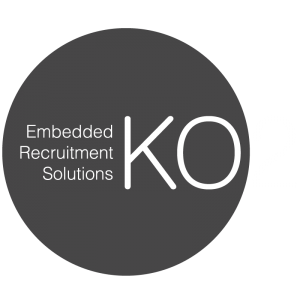Freelance and contracting work has grown in popularity as an employment solution over the past decade, with many professionals now favouring more flexible options for working when considering a new role. As an employer, you want to choose the most cost-effective solutions for expanding your workforce whilst also offering employees job security and ensuring that you keep talented individuals in your company.
Deciding between contracting and permanent employment is just as important for business owners as it is for employees, as you want to build a team of flexible and skilled individuals whilst also always having workers available for more general tasks.
This is particularly important for those working in the tech industry and embedded software specifically, where specialists are often needed to advise and help with short-term projects.
This article discusses the difference between contract and permanent employment, outlines the situations where each employment type is best, and weighs up the pros and cons of each.
Contracting
A relatively recent development in the recruitment and job industry is that more and more employees are choosing to quit their positions in a company to work as a freelancer instead. As working from home and digital nomadism are on the rise, fixed-term contracts are becoming a more popular option for those who don’t want to be tied down to a specific employer.
What is a contractor?
A contract worker is an individual who is hired on a fixed-term contract in order to offer their services to your business or work as part of a project. They are typically paid an hourly or daily rate and usually work independently.
Fixed-term contract vs contractor are two terms that sound similar, but mean very different types of employment. Whilst a contractor usually belongs to an outside organisation or is self-employed, an employee with a fixed-term contract is hired by an organisation and has all the same rights and benefits as permanent employees, they’re just only employed for a specific period of time.
When should you hire a contractor?
A fixed-term contractor is usually hired when a new team member is needed seasonally or casually for a role. Contractors are also often brought in during a particularly busy period of work, or if there is a project taking place that needs specialist input.
You may also hire a contractor for a while if one of your staff is off on maternity or paternity leave, or in the case of an illness that removes an employee from work for a couple of months.
In the embedded software market, many hires are for a specific project and so there is always an endpoint when the employee will no longer be needed on the team.
Advantages
- Contractor recruitment is incredibly useful in cases where you have a ‘gap’ in your company resources that needs to be filled for a short period of time
- There is more flexibility with a contracting than permanent employment, meaning that you can bring in workers during busy periods to help relieve the pressure on your permanent staff
- Outsourcing contractors only when you need them is a more efficient way of running a business, and makes sure that you never have employees left with nothing to do
- Contracting is the best way to bring in someone with particular knowledge and skills when a specialist is required for a project
- It can be more cost-effective overall to hire a contractor, as though they earn slightly more per hour than permanent staff, you won’t spend as much overall
- Less management is required when working with contractors, as they often only need a briefing or outline before going away and completing a task under their own steam
- If you are really impressed with the work of a contractor, you can offer them a permanent role in your company at the end of their short-term employment
Disadvantages
- A contractor does not have as much loyalty to your company as permanent employees, which means they may not prioritize your work if they are doing several different jobs at the same time
- Some people are put off by roles that are described as ‘fixed-term’ as they do not have the same security as a permanent role and are not as financially stable
- It can be harder to communicate and get hold of a contractor as they may not work regular office hours and may be involved in projects with other companies at the same time as yours
- Writing a fixed-term employment contract takes more time and effort, as employers have to be very careful with the clauses relating to start and end date, in case you have to terminate the contract earlier than expected
- Contracted employees do not receive the same benefits and holiday allowances as permanent employees, which will stop many people applying for a role
- Terminating fixed-term contracts can sometimes be difficult, and occasionally will be taken to an employment tribunal if your contractor feels they have been treated unfairly










